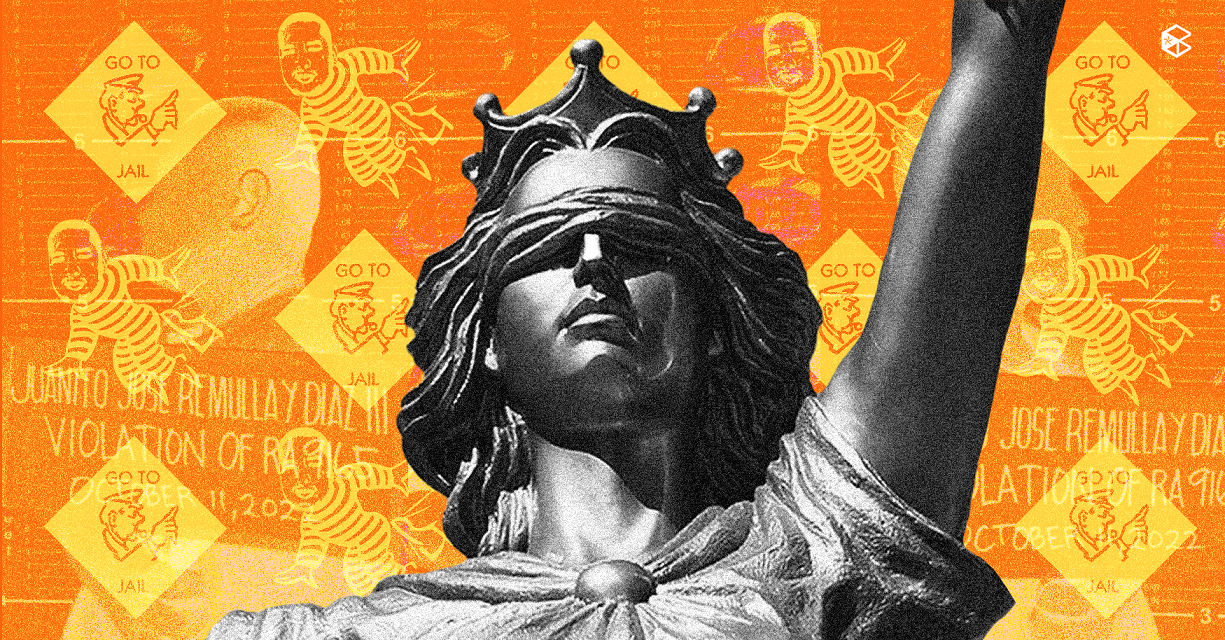On Oct. 11, 2022, Juanito Jose Remulla III, Justice Secretary Jesus Crispin “Boying” Remulla’s son, was arrested by the Philippine Drug Enforcement Agency (PDEA) and members of the Ninoy Aquino International Airport (NAIA) Inter-Agency Drug Interdiction Task Group in Las Piñas City on the basis of illegal drug possession amounting to P1.3 million worth of kush—a type of marijuana—weighing over 900 grams. Within 84 days, the trial court ruled that Remulla III is not guilty for possession of illegal drugs beyond reasonable doubt.
Section 11 of Republic Act No. 9165, also known as Comprehensive Dangerous Drugs Act of 2002, stipulates that life imprisonment is the imposed punishment for persons possessing more than 500 grams of marijuana and a fine ranging from P500,000 to P10 million. However, in the case of Remulla III, bail was not recommended by the prosecutors.
He was also denied the process of drug testing as advised by his counsel. PDEA Spokesperson Derrick Carreon affirmed this by saying that is not material to the case. Aside from that, most media reports about the arrest of Remulla III released mug shots with his face blurred. Although PDEA has already insisted the absence of special treatment and that blurring of such faces are appropriate measures of anti-drug operations, public backlash demanded the father of the accused to resign as Justice Secretary so as to not interfere with the preliminary investigation of the case.
Within 84 days, on Jan. 6, the court released its decision and ruled the acquittal of Remulla III.
Is the Philippine justice system working?
The Supreme Court issued an order in 2017 its Revised Guidelines for Continuous Trial of Criminal Cases which applies to succeeding criminal cases, including those that involve illegal drugs. The guidelines have stipulated that the trial term for drug-related cases must be finished within 60 days of the information or charge being filed by the prosecutor's office. A decision must also be reached within 75 days, or 15 days, after the matter is submitted for settlement. It also stated that the failure to comply, specifically in observing the timelines and deadlines, is a ground for disciplinary action.
The National Prosecution Service released 2016 and 2017 data on the prosecution success rate for drug cases. Remaining as one of the lowest, the prosecution success rate only ranges to 52.5%. Out of the 70,706 cases filed in 2017, the courts dismissed 5,270—around 7.5%. This is the only data pertaining to drug cases that are accessible to the public.
In 2019, data indicated that courts only had a 30.53% compliance rate for continuous trials, two years after the Supreme Court (SC) announced the rules for a speedy trial. Prior to the law, courts only had a 2.13% compliance rate for criminal cases.
Former SC spokesperson Theodore Te said in a message to Rappler that a speedy trial is quite uncommon in the Philippines. He stressed that “it usually doesn’t happen in three months. Some bail petitions don’t get resolved in three months.”
Justice delayed is justice denied
Indeed, the dispensation of justice in the Philippines related to high-profile drug cases rarely takes place. In the case of former Senator Leila De Lima—who is still imprisoned due to drug charges—she was only acquitted of one of her allegations in 2021. The two remaining allegations against De Lima, who has been detained for over six years, are still pending judgment by the court as of writing.
In addition, it took 10 months for the case of 17-year-old Kian delos Santos, a victim of former President Rodrigo Duterte’s drug war, to convict Police Staff Sergeant Arnel Oares, Patrolman Jeremias Pereda, and Patrolman Jerwin Cruz for murder.
The absence of due process has obstructed the majority of Philippine drug cases. Moving forward, the speedy trial of the acquitted Remulla III poses a greater challenge for the Philippine justice system, serving as a wake-up call for appropriate measures in delivering justice.


